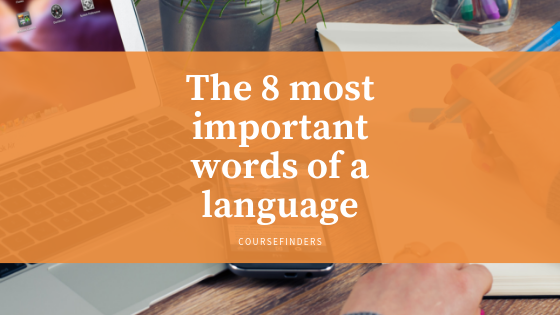If you’re just beginning to learn a language, you’ll stumble across words and phrases you’ll need over and over again. So it makes sense to learn them first, doesn’t it? So here are the 8 most important words of a language!
The 8 most important words of a language
1) Thank you
If you’re polite, you’ll get ahead in life. This is probably true in any language and for this reason you should learn the word “thank you” at the beginning. In addition, you can use it in almost any situation – no matter if you get your change at the cashier or someone has explained the way to you.
2) Please
“Please” literally stands for courtesy and is the equivalent of “thank you”. If you ask someone for something, he will probably help you better if you have hidden a “please” in your question.
3) Yes
Honestly, how many times a day do you say “yes”? Probably more often than you think and that will be the case in your language of learning. So what are you waiting for? You will certainly need it in your next conversation!
4) No
If you can say “yes”, you should also be able to say “no”, because you will want to say this little word at least as often.
5) Hello
A conversation doesn’t just start without a greeting. Whether you enter a shop, meet friends or meet a waiter in a restaurant, you’ll use the word “hello”. Here you can read more about the word and the 12 world languages: Hello and bye – in the 12 world languages.
6) I am …
A language consists of building blocks that you can put together to form different sentences. Such a building block is also “I am”. Because you can not only imagine yourself with it, but also form many other sentences, such as “I am Mark”, “I am from Germany”, “I am vegetarian” or “I am at home”.
7) Apology
Not only “please” and “thank you” stand for courtesy, but also the word “apology”. You can say it if you accidentally bumped into someone or if you want to ask someone for directions.
8) Bye
In order to end a conversation and say goodbye, you will need the word “bye”.
These were the most important words. So start learning them today!
Come back to CourseFinders.com for more articles about languages and studying abroad.
Follow us on Facebook and Twitter and don’t miss another article on CourseFinders.com!
This post is also available in: German
Would you like to attend a language course? Compare different schools on CourseFinders!
